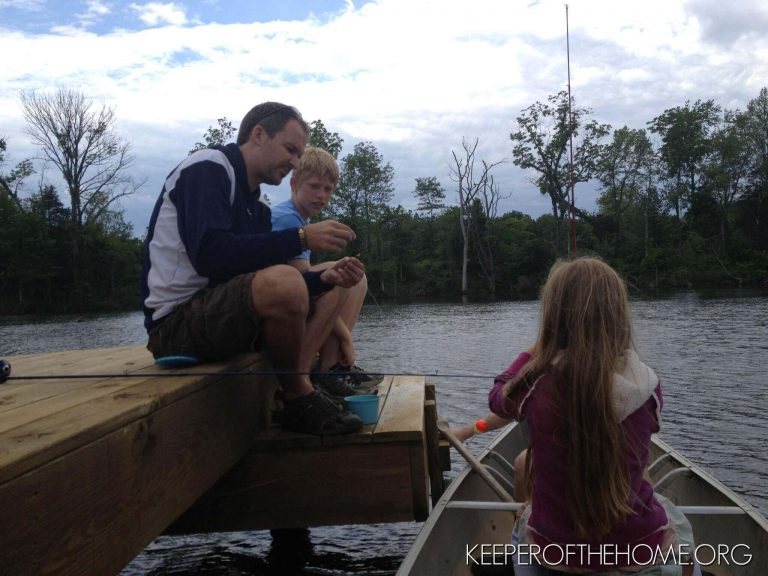Q&A- Teaching little ones
My question to you is this: What did you do when your oldest was
younger and it was just the two of you? Like, say toddler age? My
daughter is 17 months and I really want to work with her educationally and
teach her about Jesus, etc. I thought you of all people would have
some good ideas and starting points. I recently did the end of our
hallway as our “classroom”.. (the only place where all the doors could
be shut and I could get her to “focus”, so I would really like to get
our summer started off right!
Janie
First of all, Janie, I think it’s wonderful that you desire to get off to a good start with educating your daughter! Your love and care for her shines through in the fact that you are considering this issue already!
I will say right away that I am certainly no expert on home educating- in fact, I am just beginning my journey as well! However, I have been blessed to receive a mother-in-law that homeschools (my husband was home educated from Gr.3-12 and his younger brothers are just finishing up “high school” still), as well as participate in a wonderful group of homeschooling mothers through my church. Getting to know these wise and more experienced mothers has greatly helped me as I seek to do the best that I can do for my young daughter, and now my son as well!
If there is one thing that I have been encouraged to do with my daughter at a young age, it is this: teach her to thoroughly, fully enjoy the process of learning!
Though we will gradually add more specific learning and academic goals as our children get older, we have only a few basic goals while they are very young. In fact, even this fall (as my daughter will be turning 4 in a couple of months), our goals still remain virtually the same, with only the added goal of exposing her a bit more purposefully to some foundational academic skills than we have to this point (by this, I mean that we will be a little more consistent about working on pre-reading skills, numbers and early math skills, etc.).
So what are the goals that we have when they are very young?
1) Obedience and respect
Does this seem out of place? It’s not. It is most crucial to my children’s development, both academically and intellecutally, but far more importantly to their understanding of the Gospel, and the development of their own relationship with the Savior and their ability to function as a person who is under authority.
On days when I “do nothing” but care for and train my children in obedience, I am accomplishing much! It’s so difficult for me to remember, but if I manage to do nothing else all day but train and reinforce complete obedience (as as we say in our home- obedience is completely, right away and with a happy heart), then I am doing the most important thing I can as I teach my children!
2) Exposure to the Gospel
Along with each opportunity to discipline as we train in obedience comes a precious opportunity to share the Gospel with our children. What a better time than when correcting them to remind them of the sinful nature we all share, but also of the merciful Savior who is able to save us!
Though we do not achieve this 100% of the time, it is something that we strive for and ask God to enable us to do. We want to speak about Jesus and what He has done for us continually, so that these truths are well ingrained in our children’s minds and hearts at a very young age. This is so simply accomplished by being aware as opporutnities arise throughout the day- at times of discpline, when I have failed and need to apologize to my children, when there is a blessing to be thankful for, when we see something beautiful in Creation.
also, to enjoy learning, be exposed to the bible and begin to memorize, and to encourage creativity and imagination. no expecations, only that she will try and engage.
practical idea of what this looks like- at dining table, on family room floor, living room couch, sitting on her bed, at her kiddie table, as we garden or walk outiside or drive in the car. though we have recently (last fall) added a specific time of day when we focus more (we call this our learning time), it is still relaxed, flexible, and easygoing. the schedule changes slightly from day to day. I try to keep language and math and Bible activities consistent, but even within that, the methods and teaching materials change often. if we come across somethign fascinating, we’ll stop and study it. If a book inspires something in us, we’ll go with it. If it’s spring, we study seeds and how plants grow. Since we’re going to Arizona and the Grand Canyon this fall, we are spending the next month exploring the dessert, it’s animals, what the canyon is like and how it developed, etc.
;
If there is one thing that I have been learning this past year or two about teaching little ones, it is this: there is a careful balance that needs to be found between wanting to stimulate learning through planned and structured activities, and simply encouraging her to explore, create, question, listen, consider, and especially delight.
I come from an educational and career background of psychology, daycares, leading children’s and teens ministries, and working with autistic children in homes and early childhood centers (ie. preschool, daycares, community centers). As you might imagine, this background has been helpful in many senses- giving me creative ideas for teaching, some natural confidence in working with a preschooler, etc.
It also brings with it some things that I have found the need to unlearn. In a school mentality, there is a need for greater structure and control when working with young children. This is due to the low teacher to student ratio, and the need to find a way to preserve an atmosphere of calm, not chaos. Children also thrive on some level of structure, and they feel more secure when they know how things are done and what is coming next.
I am not opposed to strucure- not in the slightest! However, in my brief experience (my daughter will be 4 this fall), I would say this: It is more important in these early years to promote free play that encourages the imagination, to encourage creativity through art, games, building, drawing, and to stimulate thinking and exposure to new ideas and thoughts through reading. Lots and lots and lots of reading!
Is there any structure in what we do? Yes. Sometimes, we sit at the table when we do our work. We have a general




